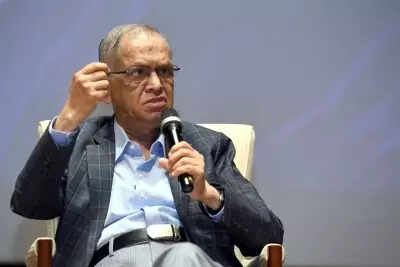Infosys Founder Advocates 72-Hour Work Week Citing China’s ‘996’ Model
Infosys founder Narayana Murthy has sparked fresh debate by urging young Indians to work 72 hours per week, citing China’s controversial ‘996’ work culture as a model for national progress.
Key Takeaways
- Narayana Murthy advocates 72-hour work week for young Indians
- References China’s ‘996’ model (9 AM to 9 PM, 6 days weekly)
- China banned this practice in 2021 due to health concerns
- Indian workers demand better pay before longer hours
Murthy’s Controversial Stand
In a Republic TV interview, the 79-year-old billionaire revealed his investment office Catamaran sent staff to study Chinese work conditions. “There is a saying in China, 9, 9, 6. You know what it means? 9 am to 9 pm, 6 days a week. And that is a 72-hour week,” Murthy stated. He advised young professionals to “get a life and then worry about work-life balance.”
China’s Banned ‘996’ Culture
The work model Murthy praised was declared illegal by China’s Supreme People’s Court in 2021 following widespread employee burnout. The practice violated China’s Labor Law limiting work to 8 hours daily and 40 hours weekly.
Despite support from tech leaders like Alibaba’s Jack Ma, who called it a “blessing,” the system faced backlash after reports of young workers collapsing from overwork. The crackdown coincided with China’s ‘lying flat’ movement rejecting extreme work pressure.
Workforce Backlash
Indian workers responded critically on social media, highlighting punishing commutes and rising living costs. Many emphasized that competitive salaries must come before extended workweeks. One commenter noted India needs “salaries that match rent, groceries, school fees, and petrol” rather than 72-hour weeks.
Others contrasted Murthy’s proposal with European work norms, where balanced schedules allow better work-life balance. The debate raises fundamental questions about whether productivity should come from longer hours or better workplace systems.




